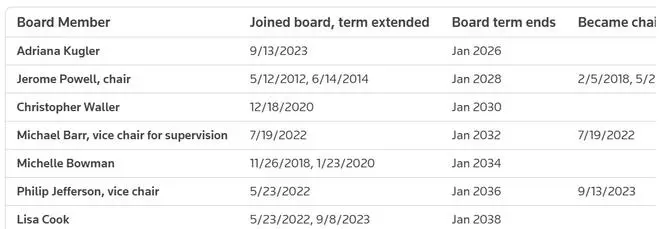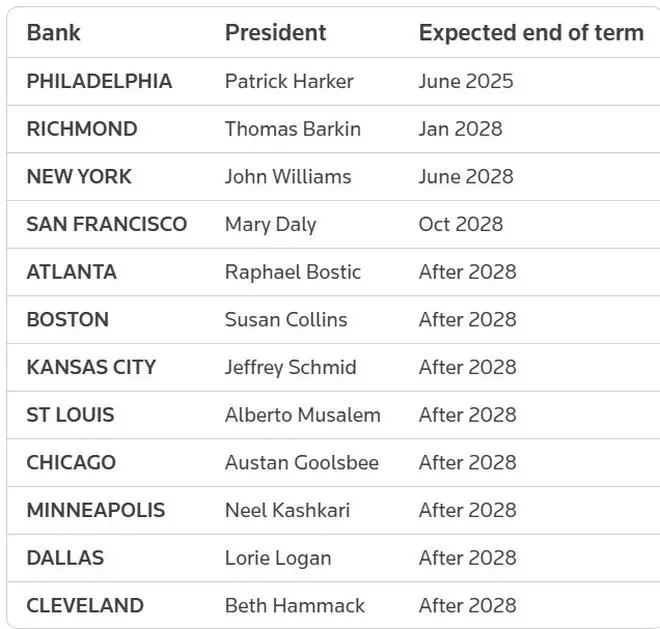Federal Reserve Chair Jerome Powell on Thursday said he would not resign if asked to do so by President-elect Donald Trump, and said presidents do not have the legal authority to remove a U.S. central bank chief.
That said, Powell’s term as chair expires in May 2026, and Trump will have an opportunity to install a new Fed chief then. He will also have a chance to replace at least one other Fed governor during his term.
Here’s a look at the Fed system’s structure and how the selection of policymakers works.
THE FED SYSTEM
The Federal Reserve System, created by Congress in 1913, comprises the Washington-based Federal Reserve Board; 12 regional Federal Reserve banks dotted across the country; and the Federal Open Market Committee, including both Fed board members and regional bank heads.
The Fed board has seven members, including an overall chair, two vice chairs – one for monetary policy and one for bank oversight – and four other governors. All are appointed by the president subject to confirmation by the Senate.
Trump succeeded in appointing four board members during his presidency and elevated Powell, who was already a governor through an appointment by Trump’s predecessor, Democrat Barack Obama, to be the Fed chair.
All of his successful appointees – including Powell and current governors Michelle Bowman and Christopher Waller – have hewn to the tradition of Fed independence. Three others who were seen by many as pushing that envelope – Stephen Moore, Judith Shelton and Herman Cain – withdrew or failed to win full Senate confirmation.
Each regional Fed bank is run by a president appointed by a subcommittee of each bank’s board of directors.
The FOMC, which has the all-important role of setting interest rate policy, comprises all seven board governors, the president of the Federal Reserve Bank of New York, and four other regional bank presidents on a rotating basis.
THE BOARD NOW
Fed governors are appointed by the president and confirmed by the Senate for 14-year terms, or for the unexpired remainder of a 14-year term for a previous incumbent. Term expirations are staggered at two-year intervals, with the next one due in 2026.
Fed chairs and vice chairs are appointed for four-year terms that run concurrently with their governorships, and typically do not stay on as governor if not re-appointed to their leadership role. Powell’s position as chair expires in May 2026, and both vice chairs’ positions expire during the term of the next U.S. president.
The following is a list of current governors, in order of their term expirations with the nearest listed first.

THE BANK PRESIDENTS NOW
Fed bank presidents are picked by the six non-banker members of their boards of directors, and must be approved by the Fed Board. They can serve until the mandatory retirement age of 65 or, if appointed after the age of 55, for 10 years or until they reach age 75.
The terms of all current bank presidents end in February 2026, when they will be considered for a fresh five-year appointment by the Board of Governors. This reupping process historically has not resulted in any change in leadership, but this is custom not law.
The following is a list of the Fed regional bank presidents with the term limit dates listed for the four whose terms will expire over the course of Trump’s next term.





